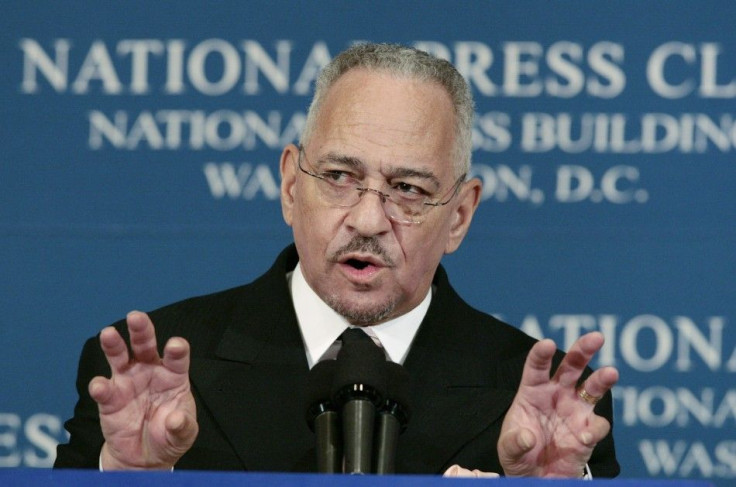Romney Campaign Distances Itself From Super PAC's Planned Jeremiah Wright Ad [UPDATE]

Mitt Romney's campaign sought to temper any fallout from a planned advertisement attacking President Obama's former pastor, releasing a statement that deplored attempts at character assassination.
The New York Times reported on Thursday that a group of prominent conservatives led by TD Ameritrade founder Joe Ricketts are in the advanced stages of planning an advertisement linking Obama to the pastor, Jeremiah Wright. Wright was at one time a spiritual guide to Obama, but the president renounced his membership in Wright's church after videos surfaced of the pastor making incendiary speeches that included the phrase God damn America.
UPDATE: Ricketts has disavowed any involvement through Ending Spending Action Fund president Brian Baker, who said in a statement that Ricketts is neither the author nor the funder of the so-called 'Ricketts Plan' to defeat Mr. Obama that The New York Times wrote about this morning, adding that the proposal was one of several and reflects an approach to politics that Mr. Ricketts rejects.
The proposed advertisement would revive the issue, seeking to expose how the influence of that misguided mentor and our president's formative years among left-wing intellectuals has brought our country to its knees, according to a draft of the proposal obtained by the New York Times.
Romney's campaign reacted quickly, releasing a statement in which campaign manager Matt Rhoades asserted the moral high road while taking a couple of swipes at President Obama.
Unlike the Obama campaign, Gov. Romney is running a campaign based on jobs and the economy, and we encourage everyone else to do the same, Rhoades said in the statement. President Obama's team said they would 'kill Romney,' and, just last week, David Axelrod referred to individuals opposing the president as 'contract killers.' It's clear President Obama's team is running a campaign of character assassination. We repudiate any efforts on our side to do so.
John McCain also resisted the urge to exploit the Wright controversy when he was the 2008 Republican presidential nominee, repeatedly insisting that Obama did not share his former pastor's views.
But the political climate has shifted drastically since then as a result of the Supreme Court's Citizens United decision and a lower court ruling that have empowered third-party political groups by lifting restrictions on fundraising and spending. Entities called Super PACs can raise and spend unlimited amounts of money so long as they do not coordinate explicitly with presidential campaigns, allowing outside groups and individuals to flood the airwaves with negative advertising.
The proposal for the advertisement explicitly boasted of being able to do exactly what John McCain would not let us do, demonstrating the hazards of powerful political entities that do not have to answer to candidates. The roughly $40 million raised by the Romney campaign last month is distinct from the political activities of outside groups.
As those groups have proliferated, the amount of negative political advertisements, or spots that attack a rival rather than try to sell voters on a candidate's accomplishments, has risen sharply.
There can be unintended consequences: for example, a documentary by a pro-Newt Gingrich Super PAC criticized Romney's work at Bain Capital, asserting that the investment firm exploited workers and slashed jobs while making a profit; with Gingrich out of the race and Romney the presumptive Republican nominee, the Obama campaign has launched a nearly identical assault on Romney's Bain record.
© Copyright IBTimes 2024. All rights reserved.











